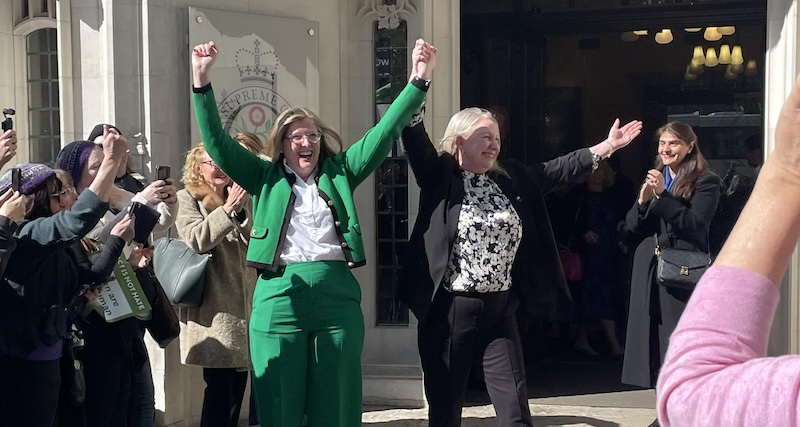Polarised response

When Lord Hodge handed down the Supreme Court’s judgment in For Women Scotland on the meaning of man and woman in the UK’s Equality Act recently, the court was, he said: “Well aware of the strength of feeling on all sides.”
That may be the understatement of the year.
Within days of the decision, which found that the UK’s main equality law refers to biological sex, protests were held outside Parliament and the Supreme Court by trans rights supporters. At the same time, specific lesbian groups, the Government and the equality watchdog amongst others welcomed the decision: the LGB Alliance talked of “profound relief”, and Bridget Phillipson, Women and Equalities Minister, made a statement in Parliament on how the judgment was providing “welcome clarity and confidence”.
Since then, there are now potential legal challenges being considered to the top court’s ruling. Dr Victoria McCloud, a consultant with W-Legal (and a retired judge) who is transgender, is reported in the media to be applying to the European Court of Human Rights on the basis of an infringement of Article 6 of the European Convention on Human Rights (right to a fair trial).
Also, The Good Law Project is currently crowdfunding to apply to the High Court for a declaration of incompatibility, arguing that the UK is now in breach of the Human Rights Act and the HR Convention.
In Dr McCloud’s situation, according to The Guardian, she had sought leave to make submissions to the For Women Scotland case, but was refused. The Supreme Court has confirmed to Legal Cheek that justices do not give reasons for refusing applications for permission to intervene, under Supreme Court rules. The reasons for refusal are set out in a practice direction. Broadly speaking these are: that someone intervening should provide assistance to the court but should not introduce new evidence or new legal issues. Permission to intervene was granted to Amnesty International, Scottish Lesbians, The Lesbian Project and LGB Alliance by way of written submissions.
For The Good Law Project, the organisation states on its website that it has a legal team “involving several KCs and at least one trans barrister” and has already raised over £360,000 of the £400,000 it says it needs to bring any legal cases.
Some of the language being swirled around about the Supreme Court itself in social media and blogs, has raised alarm bells too. Even the justice secretary, Shabana Mahmood, has had to get involved in the fray, telling a parliamentary committee last week that it was “unacceptable” to “question the validity of the Supreme Court or cast aspersions” and that they had handled the judgment “very sensitively.”
At the time of the judgment, the Supreme Court reiterated its role was “not to make policy on how the interests of these groups should be protected”. That, of course, is the role of the Government and Parliament.
The court also made clear that the Equality Act 2010 still gives transgender people specific protection against discrimination through the protected characteristic of gender reassignment or against discrimination or harassment based on their acquired gender.
However, at least one trans barrister, Crash Wigley, at Landmark Chambers, writing on the Trans Legal Project website, raises concerns over the judgment, arguing it will lead to “human rights abuses against trans people”. She writes:
“The judgment has introduced great uncertainty into the legal regime by appearing to endorse trans-exclusionary practices while leaving the human rights implications of such practices at large. Until the legislative situation is rectified, or clarified by further litigation, we are likely to see human rights breaches against trans people in the UK.”
The judgment can be read here.
The Good Law Project, Dr Victoria McCloud and Crash Wigley were contacted by Legal Cheek for comment but gave no response.